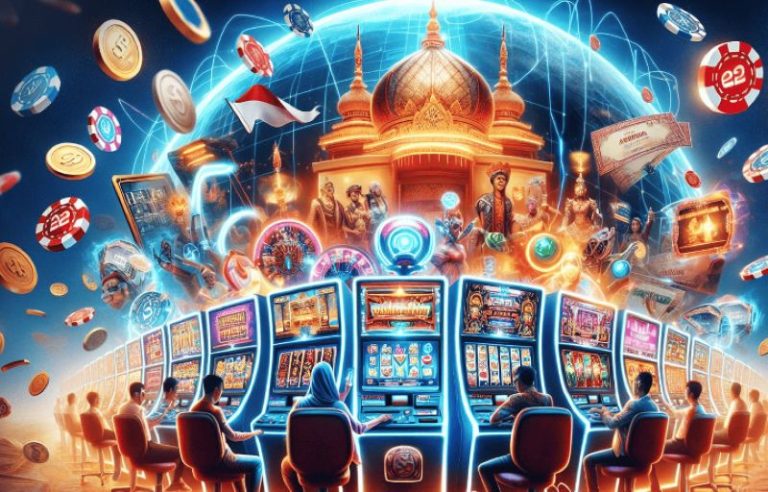

Gambling has been a part of human culture for centuries, with evidence of games of chance dating back to ancient civilisations. The sociology of gambling examines the social and cultural factors that shape gambling behaviour, including the role of community, conflict, and culture.
At its core, gambling is a social activity that brings people together, whether in a casino, a sports bar, or a friendly game at home. The social aspect of gambling is important in understanding why people gamble and how it affects their behaviour. For some, gambling is a way to socialise and connect with others, while for others, it is a solitary activity that provides a sense of escape or relaxation.
However, gambling is not without its conflicts. The potential for financial loss, addiction, and other negative consequences can create tension within families, communities, and society as a whole. The sociology of gambling seeks to understand these conflicts and how they can be mitigated or resolved. The team at JeffBet, the online casino and sports betting site, explored how culture and society influence the way people gamble. By examining these factors, we can gain insights into how to promote responsible gambling and reduce the negative impacts of gambling on individuals and society.
Theoretical Frameworks in the Sociology of Gambling
Cultural Theories of Gambling
Cultural theories of gambling suggest that gambling is a product of cultural values and norms. These theories argue that gambling behaviour is influenced by cultural factors such as beliefs about luck, risk-taking, and the role of chance in life. According to these theories, gambling is a socially constructed activity that is shaped by cultural values and beliefs.
Structural Factors in Gambling Behaviour
Structural theories of gambling focus on the social and economic structures that influence gambling behaviour. These theories suggest that gambling is influenced by factors such as socioeconomic status, access to gambling venues, and the availability of gambling opportunities. According to these theories, gambling behaviour is shaped by the social and economic context in which it occurs.
Symbolic Interactionism and Gambling
Symbolic interactionism is a theoretical framework that focuses on how with each other and with their event. In the context of gambling, symbolic interactionism suggests that gambling behaviour is influenced by the meanings that individuals attach to gambling. According to this theory, gambling is a social activity that is shaped by the interactions between gamblers and their environment.
Gambling and Community Dynamics
Gambling is not just an individual activity; but it also has an impact on the wider community. This section will explore the relationship between gambling and community dynamics.
Social Capital and Gambling
Social capital refers to the networks, norms, and trust facilitating cooperation and coordination among individuals within a community. Some studies have found that gambling can strengthen social capital by providing opportunities for social interaction and strengthening social ties. For example, gambling can be a way for people to bond with friends or family members. Moreover, gambling can also provide a sense of belonging and identity for individuals who share a common interest in gambling.
Gambling’s Impact on Community Cohesion
While gambling can strengthen social ties, it can also have negative effects on community cohesion. For instance, gambling can create conflicts within families and friends, particularly when gambling leads to financial problems. Additionally, gambling can lead to social exclusion and stigmatisation for individuals who are perceived as problem gamblers. These negative effects can undermine community cohesion and reduce social capital.
Regulatory Policies and Community Welfare
Regulatory policies are crucial in shaping the relationship between gambling and community welfare. Effective regulations can help to mitigate the negative effects of gambling on individuals and communities. For example, regulations can ensure that gambling is conducted fairly and transparently, that vulnerable individuals are protected from harm, and that problem gambling is addressed effectively. On the other hand, inadequate regulations can exacerbate the negative effects of gambling and undermine community welfare.
Conflict and Controversy in Gambling Cultures
Ethical Considerations in Gambling
Gambling can raise ethical concerns due to its potential to exploit vulnerable individuals, promote addiction, and cause financial ruin. Some argue that gambling is immoral and should be banned, while others believe that it is a personal choice and should be regulated to ensure fair play and protect players from harm.
The Stigmatisation of Gambling
Despite its widespread popularity, gambling is often stigmatised as a vice and associated with negative stereotypes such as addiction, greed, and immorality. This stigma can lead to discrimination and social exclusion for those who participate in gambling activities.
Dispute Resolution in Gambling Communities
Disputes can arise in gambling communities over issues such as cheating, fraud, and unpaid debts. To address these conflicts, gambling communities often have informal dispute resolution mechanisms, such as mediation or arbitration. In some cases, legal action may be necessary to resolve disputes.
Overall, conflict and controversy are inherent in gambling cultures, and ethical considerations, stigma, and dispute-resolution mechanisms must be taken into account to ensure a fair and safe gambling environment.
Cultural Representations of Gambling
Media Portrayals of Gambling
Gambling has been a popular theme in various forms of media, including movies, TV shows, and news articles. These portrayals often depict the excitement and thrill of gambling, but they can also show the darker side of addiction and financial ruin. In recent years, there has been an increase in the number of gambling-related advertisements on TV and online platforms, which has sparked concerns about the normalisation of gambling in society.
Gambling in Literature and Art
Gambling has also been a popular theme in literature and art, with many famous works featuring gambling scenes or characters. For example, Fyodor Dostoevsky’s novel “The Gambler” explores the psychological effects of gambling addiction. At the same time, the painting “Dogs Playing Poker” by Cassius Marcellus Coolidge is a humorous take on the gambling culture of the early 20th century.
The Influence of Technology on Gambling Culture
The rise of technology has significantly impacted the gambling industry and culture. Online gambling has become increasingly popular, with many people preferring to gamble from the comfort of their own homes. This has led to concerns about gambling’s accessibility and the potential for addiction. Mobile apps have also made it easier than ever to gamble on the go, with many sports betting apps allowing users to place bets from their smartphones.
Overall, cultural representations of gambling can both reflect and shape societal attitudes towards gambling. While some portrayals can highlight the excitement and entertainment value of gambling, others can reveal the potential dangers and negative consequences of excessive gambling.


